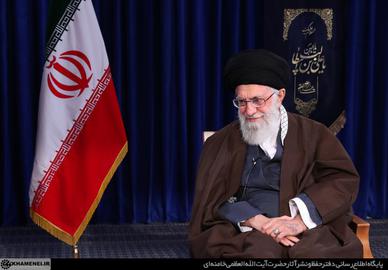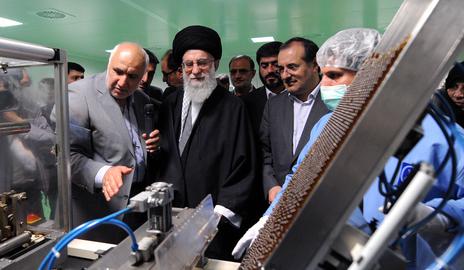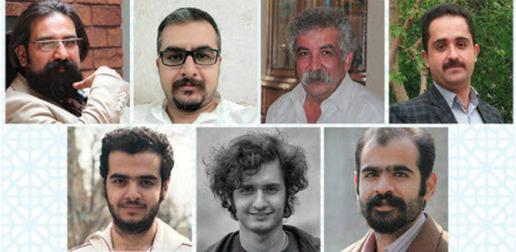Hailed from the revolutionary generation of the 1970s, Iran’s Supreme Leader simply does not believe in the markets or the concept of a global economy.
Every year, Iran’s Supreme Leader Ayatollah Ali Khamenei uses the occasion of the Iranian New Year, Norooz, to set the framework for policymakers for the year ahead. This Persian new year, Khamenei said, will be the year to support “national” products — meaning domestic ones.
In his sermon, Iran’s Supreme Leader emphasized the need to support domestically-produced commodities, to limit imports and to support local industries. He observed that Iran shares borders, both land and sea, with 15 countries. He asserted that Iran can supply up to 20 percent of what the region needs, and of what these nations consume. “We have great resources and potentials, which we have not used so far. If we use these, our situation improves significantly,” he announced.
And he emphasized the importance of the country’s youth. “In nanotechnology, in high tech industries, in many industries, our youth are working, trying and showing that they can accomplish great things,” he said — giving the example of Iran’s nuclear program, an industry that boasts many scientists and experts in their early thirties.
The Ayatollah and many Iranians agree on the ideal economy for Iran: Strong in regional exports, advanced in high-tech industries and a pioneer in innovation, where the youth contribute to creativity and expansion. In other words, Iran can be the Silicon Valley of the Middle East, a healthy economy where “yes, we can” is the prevailing attitude. However, the Supreme Leader has his own ideas on how to build this ideal national economy — and these ideas are not the same as the ideas of most Iranian citizens.
Khamenei’s ideas subscribe to the school of thought that economies are isolated islands connected via official channels of trade, which are closely monitored by the government. He believes in a command and control approach to the economy, where the state uses central planning to allocate resources and funds for the nation’s demands and the industries’ goals. In his Norooz address, he called for “comprehensive planning” to solve the issues Iranians face. He blames government officials — President Rouhani’s officials — for not believing in Iran’s potentials. In his view, if the economy performs poorly, then the fault rests with lazy public officials and their poor planning. The economy can thrive if only ministers put their plans together. There is no place for markets, consumer choice, an unpredictable future or the volatility of global markets. If oil prices are going down, the Ayatollah blames it on conspiracy theories, not the existing surplus or new technologies. And, sadly, because he is “the Supreme Leader,” Iranian authorities know they must follow suit.
The Pull of Populism
The 20th century has seen plenty of other failed command and control economies. Throughout the century, the Soviet Union (USSR), members of the eastern bloc, India, China and many other Asian and African economies were run by bureaucrats and public officials committed to central planning. And today, millions of people in those countries remember what the bad old days looked like: shortages, long bread lines, inefficiencies, black markets and rampant corruption. China’s recent economic success can be attributed to Deng Xiaoping’s acceptance of the market economy in the late 1970s. India’s economic perspectives improved drastically when the liberalization period started, and its government began systematic deregulation in favor of a market approach to the economy. The Iranian economy is one of the very few economies in the world where the government functions as the primary owner, employer, and investor, as well as its regulator.
The aging revolutionaries still believe that this nationalist, borderline xenophobic approach to the economy will work, despite widespread public dissatisfaction, entrenched corruption and ineffective governance.
Ayatollah Khamenei’s economic vision may be wrong, but it is not outdated. He believes in an old-fashioned definition of the national economy, but his approach to imports is rather similar to populist sentiment anywhere else in the world today, especially where disenfranchized masses have not benefited from globalism. He believes imports take away jobs. His staff have prepared reports on the number of jobs lost when there has been an increase in imports. In his Norooz speech, he called upon authorities not to allow the import of any commodity that can be manufactured domestically. He asserted that the cost of production should be reduced and that processes needed to be competitive, and called for the expansion of exports with the help of good marketing and by providing support to Iranian producers. The catch is that, except for limiting the amount of imports, governments usually do a very poor job in every other area.
A Need for Diversity and Entrepreneurs
Ayatollah Khamenei’s Norooz address will lead to limits on imports through the creation of more government committees and official monopolies. These will promote rent-seeking behavior by regime insiders and cronies, who will demand a greater share of the wealth without being productive. As with many times over the last four decades, regime affiliates will become overnight billionaires by securing their rights to be the sole importer of a particular commodity. Tariffs on car imports might increase to protect local car manufacturers, which are already protected by import tariffs close to 100 percent. These policies will actually cause the price of imports to rise, helping the remaining importers pocket more profits. Although officially the policies are set to protect local production and domestic industries, in reality, these policies will increase and expand the state control of the economy while limiting the private sector even further.
In his Norooz speech, the Supreme Leader did not specify what his export expansion policies or import substitution strategies actually are. He promoted both as if they were one and the same thing. However, when policies are put in place to substitute imported goods with domestically-produced ones, the costs usually turn out to be greater than anticipated. Increased tariffs and government subsidies prevent the country’s limited resources from being appropriately allocated. And import substitution efforts often result in low-quality domestic products, which cannot compete in international or even regional markets. In other words, if Iran wants to supply its regional market it needs to improve and expand its exports — not find substitutes for its imports.
Ayatollah Khamenei regards international agreements and organizations as barriers that block Iran’s path to economic growth. He seems not to understand that abiding by these mechanisms are necessary for any country that wants to thrive in today’s global economy. Iran is not a member of the global economy and has survived in isolation through selling oil and gas for the past four decades. Now it must join the global economy by expanding and freeing its private sector. The government must welcome more diversity in Iran’s labor force and encourage entrepreneurship. However, the regime is wary of anyone outside its small circle of allies and cronies gaining any influence in the business community. Gaining such influence could inevitably lead to political influence, and those who have run Iran since the 1979 Islamic Revolution have tried to prevent this by all means possible.
Iran must join the global economy by expanding and freeing its private sector. The Supreme Leader’s views have little to do with modern economy. They belong to the island economies of the 1960s. For Iran’s private sector, the challenge is to grow to meet the demands of the global market, despite constant government intervention.
visit the accountability section
In this section of Iran Wire, you can contact the officials and launch your campaign for various problems



























comments